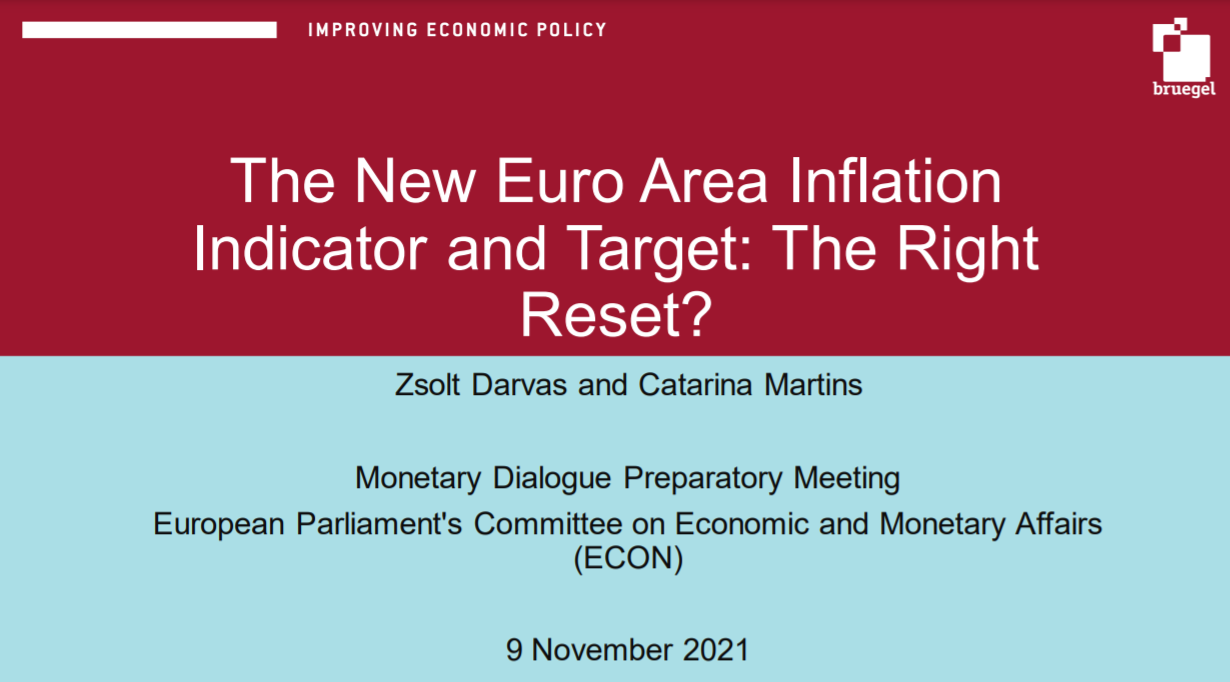Parliamentary Testimony
The New Euro Area Inflation Indicator and Target: The Right Reset?
Testimony to the Monetary Dialogue Preparatory Meeting of the European Parliament's Committee on Economic and Monetary Affairs (ECON).
On 9 November 2021, Zsolt Darvas, Bruegel Senior fellow, gave testimony to the Monetary Dialogue Preparatory Meeting of the European Parliament’s Committee on Economic and Monetary Affairs (ECON) on the topic “The New Euro Area Inflation Indicator and Target: The Right Reset?”. The presentation was based on the briefing paper he co-authored with Catarina Martins.
He emphasised that the ECB’s recent monetary policy strategy review resulted in useful changes to the monetary policy framework, but he highlighted four important questions. First, the causes of the ECB’s miserable forecasting failure (whereby all forecasts made between 2014-2019 predicted large increases in euro-area core inflation, but core inflation remained stable around 1% ) is unknown. Second, the ECB adopted the FED’s previous inflation target (flexible inflation targeting) and the reason for not adopting the FED’s new target (average inflation targeting) is unclear. Third, more clarity is needed on the influence of financial stability concerns on monetary policy and its medium-term time horizon, also to ensure ECB accountability. Fourth, the intention to include the costs of owner-occupied housing in the inflation indicator is welcome, but in contrast to the “rental equivalence” method used in the US, ECB and Eurostat seem to favour the “net acquisition” approach, which would involve an asset price component in the inflation indicator.









